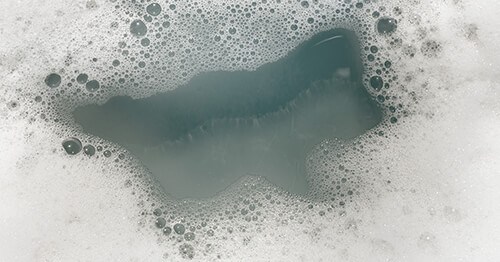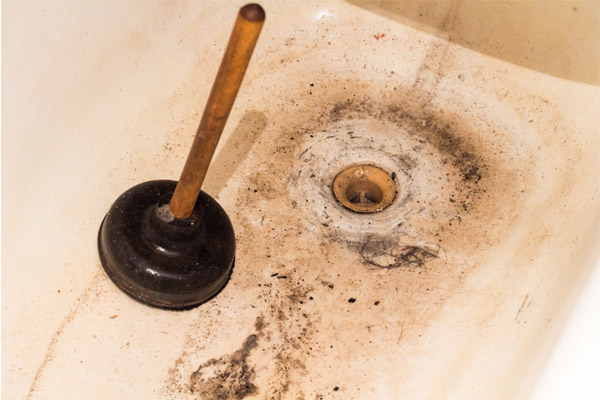My Comprehensive Guide: Drainage Rising Through the Bathtub
My Comprehensive Guide: Drainage Rising Through the Bathtub
Blog Article
Every person is bound to have their own individual concepts on the subject of Why is There Sewage Coming Up Through the Bathtub.

Sewage back-up in the bathtub can be a traumatic and unsanitary trouble for any kind of home owner. Not only is it bothersome, however it likewise poses significant health risks and shows underlying problems with the plumbing system. Recognizing why sewage is turning up through the bath tub is critical for taking proper activity to deal with the problem properly.
Introduction to the Problem
Comprehending the Issue
When sewer starts backing up into the tub, it's a clear sign of an issue with the drainage system. The wastewater that must be flowing away from your home is rather finding its back into your home, which can cause significant damage and carcinogen.
Possible Reasons
Numerous variables can add to sewage back-up in the bath tub. From obstructions in the sewer line to issues with the plumbing infrastructure, identifying the origin is crucial for locating an option.
Typical Factors for Sewer Back-up
Blockages in the Sewage System Line
Among the most typical reasons for sewage backup is an obstruction in the sewage system line. This can occur because of the buildup of particles, oil, or international items in the pipelines, preventing proper circulation and causing sewage to back up right into your bath tub.
Tree Origin Intrusion
Tree origins seeking wetness and nutrients can infiltrate sewage system lines via small splits or joints. Over time, these origins can grow and increase, triggering significant damages to the pipes and resulting in sewer back-up problems.
Aging Framework
Older homes may have obsoleted plumbing systems that are more prone to rust, fractures, and wear and tear. As pipes age, they end up being much more vulnerable to leakages and blockages, boosting the chance of sewage back-up events.
Heavy Rainfall or Flooding
Throughout durations of heavy rainfall or flooding, the sewer system may end up being overloaded with excess water, triggering backups and overflows. This can result in sewer supporting into tubs and other components inside the home.
Wellness Threats Related To Sewage Back-up
Contamination of Supply Of Water
Sewer backup can infect the water in your home, posing a significant wellness risk to you and your family members. Exposure to polluted water can lead to intestinal issues, skin infections, and various other diseases.
Spread of Condition
Sewer consists of dangerous microorganisms, viruses, and bloodsuckers that can trigger a series of diseases, including liver disease, cholera, and gastroenteritis. Entering contact with sewage or polluted surface areas places you in danger of infection.
Mold and mildew Development
Wetness from sewer backup can develop suitable problems for mold development in your home. Mold and mildew spores can aggravate breathing problems and trigger allergic reactions in sensitive people, making prompt clean-up vital.
Signs of Sewage Backup
Foul Odors
Undesirable odors originating from drains pipes or fixtures, specifically in the shower room, may suggest sewage backup concerns. These odors are often strong and consistent, indicating an issue that needs instant interest.
Slow Draining Fixtures
Tubs, sinks, and toilets that drain pipes slowly or not at all could be experiencing sewage backup. If several components are affected simultaneously, it's likely that the issue stems from an usual point, such as the major drain line.
Gurgling Sounds
Odd gurgling or bubbling sounds coming from drains pipes when water is running elsewhere in the house are a sign of air caught in the plumbing system. This air build-up can arise from sewage back-up and ought to be checked out promptly.
Immediate Actions to Take
Turning Off Water System
In the event of sewage backup, it's necessary to turn off the water to prevent further contamination and damage. Find the major water shutoff valve in your home and closed it off until the issue can be solved.
Getting In Touch With a Specialist Plumber
Taking care of sewer backup is not a DIY work. Get in touch with a licensed plumber with experience in taking care of sewage-related issues to assess the situation and do necessary repair work or cleanups.
Avoiding Contact with Infected Water
Until the sewage backup is fixed, prevent contact with infected water to stop the spread of microorganisms and microorganisms. Put on protective equipment if you need to remain in the affected area and clean your hands thoroughly afterward.
Preventive Measures
Normal Maintenance of Drain Lines
Set up regular assessments and maintenance of your sewer lines to identify and resolve possible issues before they escalate into major troubles. This can consist of clearing out debris, checking for tree root intrusion, and fixing any damaged pipelines.
Setting Up Backwater Valves
Consider setting up bayou valves in your plumbing system to stop sewer from flowing back right into your home throughout durations of heavy rainfall or flooding. These valves automatically close when water starts backing up, shielding your residential property from contamination.
Proper Disposal of Home Waste
Avoid flushing anything aside from bathroom tissue and human waste down the bathroom to prevent blockages and blockages in the sewer line. Dispose of grease, oil, and other household chemicals correctly to minimize the threat of plumbing problems.
Tidying up After Sewer Backup
Sanitation Procedures
Thoroughly sanitize and sterilize affected locations after sewage back-up to get rid of unsafe microorganisms and prevent mold development. Use appropriate cleaning products and protective gear to make certain risk-free and effective clean-up.
Remediation of Impacted Areas
Repair any type of damage to floor covering, walls, or fixtures triggered by sewer backup. Depending on the degree of the damage, you may require to change carpets, drywall, or other products to recover your home to its pre-loss condition.
Why is There Sewage Coming Up Through the Bathtub
Sewage in your bathtub is a major problem that can make you want to abandon the bathroom for good. You don’t have to. However, it is important to identify the source of the issue and take the necessary steps to resolve it in order to avoid any health risks and property damage. In this article, we will discuss what could be causing sewage to back up through your bathtub so you can take action quickly and effectively.
The Main Reason For Sewage Backup in The Bathtub
All the sinks and toilets in your home connect to different pipes that lead to the main sewer line. The sewer line then connects to the municipal sewer system. This connection works seamlessly on a daily basis, but there can sometimes be a problem with the main sewer line.
The most common cause of sewage backup is a clogged or blocked main sewer line. The main sewer line can be clogged due to the accumulation of debris, tree roots or grease buildup, or other materials. Another possible cause is a collapsed pipe. When this happens, your toilets and sinks won’t be able to drain properly. This is when sewage starts backing up through the bathtub. If the problem has been occurring for some time now, it might be time to consult with a plumber as there may be more severe damage that needs fixing.
How Can You Tell if it’s Coming From Your Sewer Line?
If you’re experiencing a sewage backup in your bathtub, then you can use a few simple methods to determine if it is coming from the main sewer line. First, try to unclog the tub drain with a plunger or an auger and see if that helps. If not, then inspect all of the drains in your house and check if there is any blockage in them. If some of the other drains are not working fine, then it’s likely the problem is with your main sewer line.
Common Signs of a Clogged Main Sewer Line
If you suspect that your main sewer line is blocked, then there are a few common signs to look out for. Frequent clogs in your home are a sure sign of a clogged sewer line. You can also check for slow drainage from all the plumbing fixtures.
Slow Drains
If you notice that it takes longer for your sinks and toilets to drain, then this could be a sign of a clogged main sewer line.
Frequent Clogs
Another common sign is that your drains or toilets become clogged almost all of the time. If this happens, then it could be a sign that the main sewer line is blocked.
Water Backup
Do you notice water or sewage coming back up from any of the drains in your home? If your answer is yes, you may have a clogged main sewer line.
Sinkholes
If you’ve noticed sinkholes in your yard or overflowing sewage from the ground, you may be facing a blocked sewer line issue.
Your Shower or Sink Makes Gurgling Noises
Have you noticed gurgling noises coming from your sink or shower lately? These are typically signs of a blocked sewer line and should be checked out immediately.
How to Prevent a Main Sewer Line Clog
Once you’ve identified that your main sewer line is clogged, it’s important to take steps to prevent it from happening again. The best way to do this is to avoid putting any solid material that can clog the drain, such as grease and other debris. You should also be mindful of what you flush down your toilet. In addition, you should schedule regular maintenance for your main sewer line. This will help keep it clear and free from clogs or backups.
What Should You do if You Notice Sewage Backing up Through The Bathtub?
If you’ve noticed sewage backing up through the bathtub, then it is important to call a professional plumber immediately. A plumber can inspect the situation and determine what the cause is, such as a blocked main sewer line. They will also be able to advise you on how best to fix the issue. In some cases, a simple drain cleaning may be all that is needed.
However, if the blockage is severe, then your plumber may need to use more advanced methods to clear the blockage.
No matter what, it is important to always call a professional plumber if you experience any kind of sewage backup. They will be able to assess the situation and provide you with a solution that is best for your home.
https://baylorinc.com/blog/why-is-there-sewage-coming-up-through-the-bathtub/

I was shown that write-up about Why is There Sewage Coming Up Through the Bathtub from an acquaintance on another blog. Please set aside a second to promote this blog posting if you enjoyed it. I praise you for your time. Return soon.
Go Deal Now
Report this page